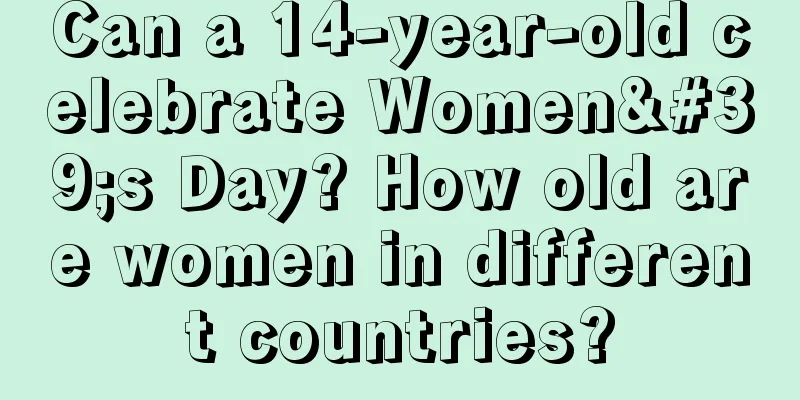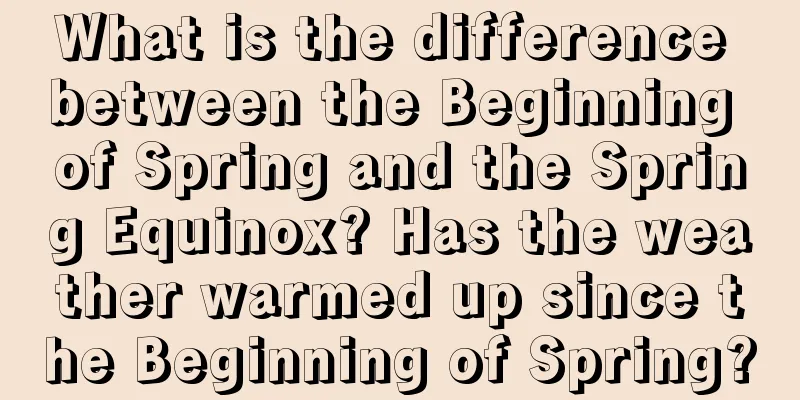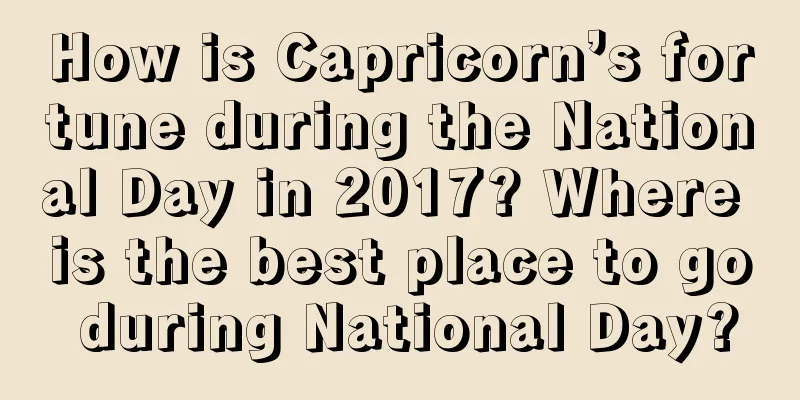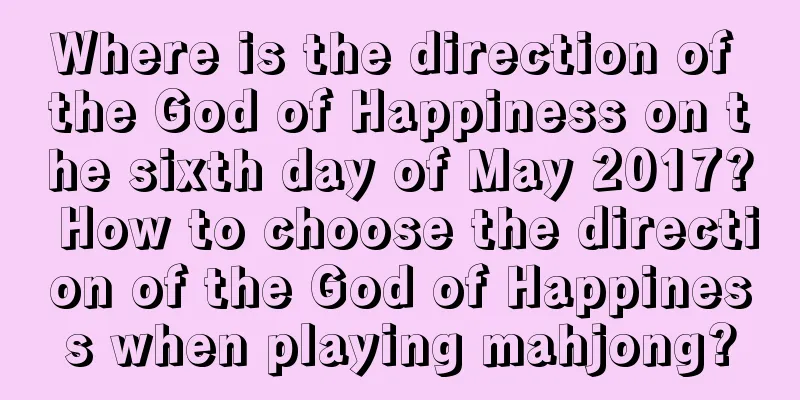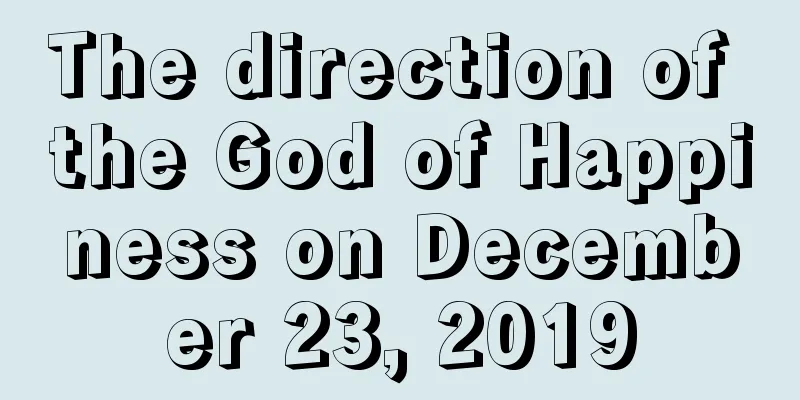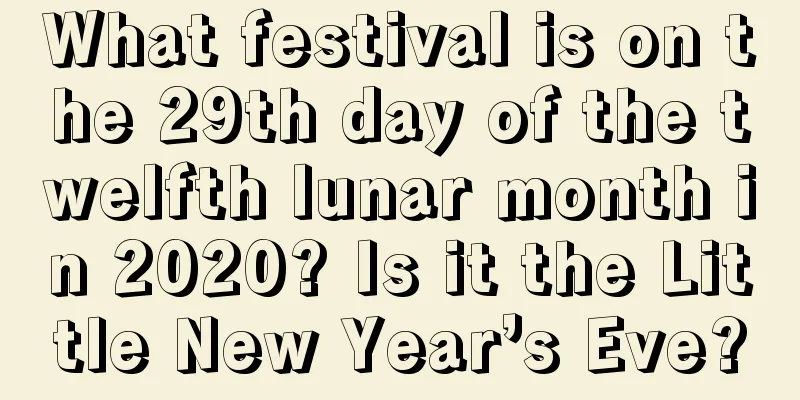What is the origin of New Year’s Day? How do you say Happy New Year in English?
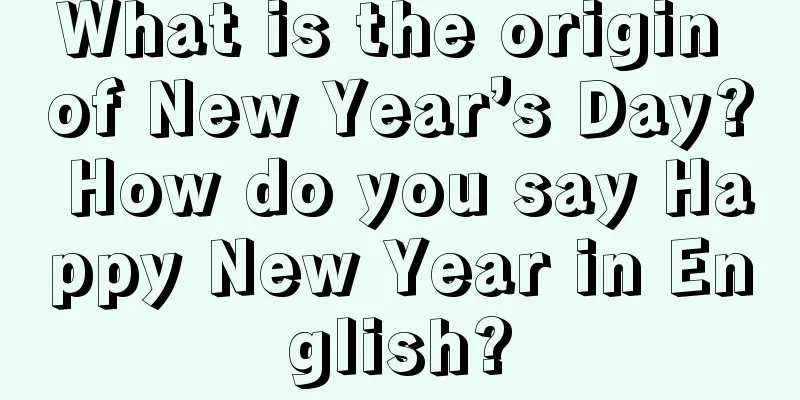
Many people are celebrating New Year's Day in their own way. I believe that many people do not understand this festival. So now let us take a look at the origin of New Year's Day. How do you say Happy New Year in English?What is the origin of New Year’s Day?The "yuan" in "Yuan Dan" means the beginning, which means the first. The beginning of any number is called "yuan"; "dan" is a pictograph. The "ri" on the top represents the sun, and the "yi" on the bottom represents the horizon. "Dan" means the sun rising from the horizon, symbolizing the beginning of a day. People combine the two characters "yuan" and "dan" to mean the first day of the new year.The legend about New Year's Day can be traced back to the ancient Yao and Shun period, and it starts with the abdication system during the Yao and Shun period. When Emperor Yao was in power, he worked diligently for the people, governed the world well, and was deeply loved by the people. But his son was incompetent, so he gave the throne to Shun, who was both virtuous and talented. Later, Shun passed the throne to Yu, who had made great contributions to flood control. Later, people regarded the day after Yao's death when Emperor Shun offered sacrifices to heaven and earth and the former Emperor Yao as the beginning of the year, and called the first day of the first lunar month "New Year's Day", or "Yuan Zheng". The "New Year's Day" we are talking about today was September 27, 1949, on the eve of the founding of New China. The First Chinese People's Political Consultative Conference, while deciding to establish the People's Republic of China, also decided to adopt the world's universal Gregorian calendar, which is what we call the Gregorian calendar. How do you say Happy New Year in English?"Happy New Year" is translated into English as Happy new year!New year as an adjective means New Year's Day or New Year's Day. The British pronunciation of happy is bai['hæpi]; the American pronunciation is ['hæpi]. As an adjective, it means happy, blessed, lucky, and willing. The word entered English in the mid-14th century and is directly derived from the Old English hap, meaning lucky. |
Recommend
Is today's Great Cold Day suitable for raising the beams of a house in 2021? Which regions eat rice cakes during the Great Cold?
Introduction: There are some things that are good ...
Auspicious days for April in the lunar calendar 2022
April in the lunar calendar is the first month of ...
Where is the God of Wealth on May 26, 2017? What is the direction of the God of Wealth?
The fifth month of the lunar calendar is the firs...
Why do we eat rice dumplings during the Dragon Boat Festival? What are the particulars of eating zongzi?
The Dragon Boat Festival is here, and the fragranc...
How is the lunar calendar for May 12, 2019, suitable for traveling?
What is the auspiciousness or inauspiciousness of ...
Where is the position of the God of Wealth in October 2020? Where is the God of Wealth enshrined?
The tenth month in the lunar calendar is named De...
What is the fate of a girl born on the fourth day of the twelfth lunar month in the Year of the Rat 2020?
The last month of the lunar calendar is also calle...
Is November 30th of the lunar calendar in 2021 suitable for travel? Is it an auspicious day?
The eleventh month of the lunar calendar is about ...
Is December 6, 2020 suitable for opening a new store? Is it an auspicious day?
The twelfth month of the lunar calendar, commonly...
Analysis of auspicious and inauspicious times on the eleventh hour of December in the lunar calendar 2019, according to the twelve-hour system!
The twelve-hour system has been used since the We...
What is the saying about an old person passing away during the Jingzhe solar term? What are the taboos when an elderly person in the family passes away?
Speaking of Jingzhe, I believe everyone is familia...
Are people born in a young year good? Is it true that people born in the early years of the lunar calendar have a harder life?
The fortune of each person born at different times...
Is December 28th of the lunar calendar in 2020 suitable for a company to open?
Is December 28th of the lunar calendar in 2020 su...
Can screens ward off evil spirits? Detailed explanation of the Feng Shui effect of screens
Introduction: Everyone is familiar with screens, ...
How to post Spring Festival greetings in 2019 on WeChat Moments?
How to post Spring Festival greetings in 2019 on W...
